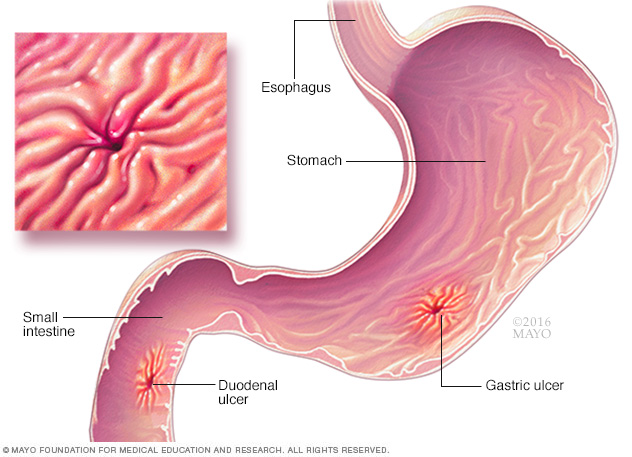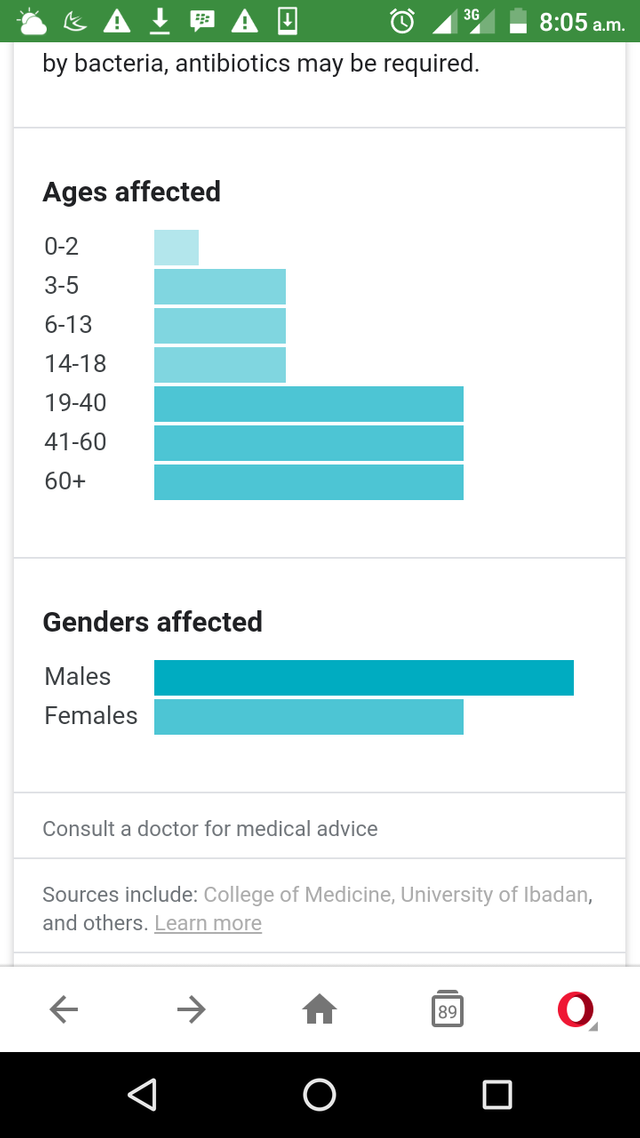What You should Know About Stomach Ulcer

Stomach ulcer is no doubt one of the major medical conditions that has bedeviled so many people in the world, particularly Nigerians.
According to research conducted by medical doctors at the medical college, University of Ibadan, Nigeria, more than 100 thousand cases are reported every year in the country though about 60% of them are not severe.
Now let's look at what stomach ulcer is.
According to Shannon Johnson of Healthline.com, Stomach ulcers, which are also known as gastric ulcers, are painful sores in the stomach lining. Stomach ulcers are a type of peptic ulcer disease. Peptic ulcers are any ulcers that affect both the stomach and small intestines.
Stomach ulcers occur when the thick layer of mucus that protects your stomach from digestive juices is reduced. This allows the digestive acids to eat away at the tissues that line the stomach, causing an ulcer.
Stomach ulcers may be easily cured, but they can become severe without proper treatment.
Johnson also revealed that Stomach ulcers are almost always caused by one of the following:
An infection with the bacterium Helicobacter pylori (H.pylori).
Long-term use of nonsteroidal anti-inflammatory drugs (NSAIDs), such as
aspirin, ibuprofen, or naproxen.
Rarely, a condition known as Zollinger-Ellison syndrome can cause stomach and intestinal ulcers by increasing the body’s production of acid. This syndrome is suspected to cause less than 1 percent of all peptic ulcers.
TREATMENT
Johnson stated that treatment will vary depending on the cause of your ulcer. Most ulcers can be treated with a prescription from your doctor, but in rare cases, surgery may be required.
If your stomach ulcer is the result of H. pylori, you’ll need antibiotics and drugs called proton pump inhibitors (PPIs) . PPIs block the stomach cells that produce acid.
In addition to these treatments, your doctor may also recommend:
H2 receptor blockers (drugs that also block acid production).
Stopping use of all NSAIDs.
Follow-up endoscopy.
Probiotics (useful bacteria that may have a role in killing off H. pylori).
Bismuth supplement.
SYMPTOMS
According to myoclinic.com, the following are the symptoms of stomach ulcer:
Burning stomach pain
Feeling of fullness, bloating or belching
Fatty food intolerance
Heartburn
Nausea
The most common peptic ulcer symptom is burning stomach pain. Stomach acid makes the pain worse, as does having an empty stomach. The pain can often be relieved by eating certain foods that buffer stomach acid or by taking an acid-reducing medication, but then it may come back. The pain may be worse between meals and at night.
Nearly three-quarters of people with peptic ulcers don't have symptoms.
Less often, ulcers may cause severe signs or symptoms such as:
Vomiting or vomiting blood — which may appear red or black
Dark blood in stools, or stools that are black or tarry
Trouble breathing
Feeling faint
Nausea or vomiting
Unexplained weight loss
Appetite changes.

PREVENTION
You may reduce your risk of peptic ulcer if you follow the following recommendations:
Protect yourself from infections: It's not clear just how H. pylori spreads, but there's some evidence that it could be transmitted from person to person or through food and water.
You can take steps to protect yourself from infections, such as H. pylori, by frequently washing your hands with soap and water and by eating foods that have been cooked completely.
Use caution with pain relievers: If you regularly use pain relievers that increase your risk of peptic ulcer, take steps to reduce your risk of stomach problems. For instance, take your medication with meals.
Work with your doctor to find the lowest dose possible that still gives you pain relief. Avoid drinking alcohol when taking your medication, since the two can combine to increase your risk of stomach upset.
If you need to take a pain medication associated with ulcers, you may need to also take additional medications such as an antacid, a PPI, an acid blocker or cytoprotective agent.
Source: www.healthline.com